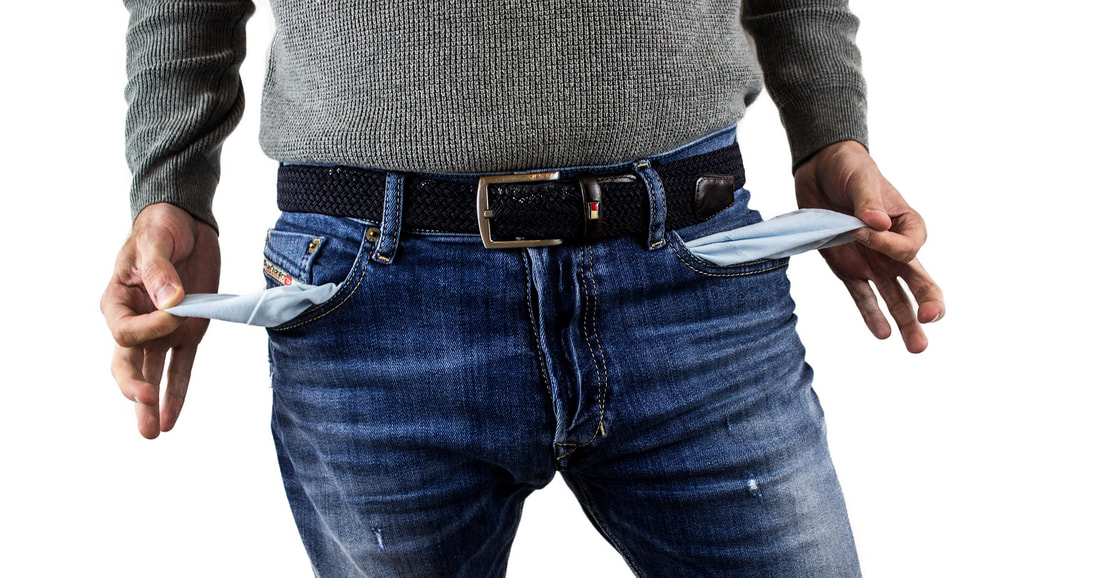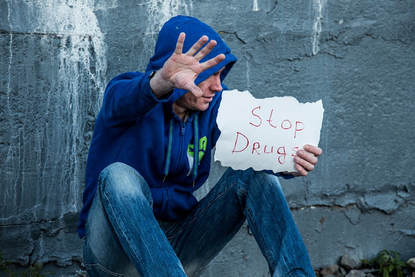Author: Sarah DaviesVirtually anything can become an addiction. Whether the object of your affliction is a chemical substance or a disruptive behavior, it can easily be considered an addiction when it’s keeping you from freely experiencing the happiness and health that you deserve. If you fear that you or someone you love may be beginning to suffer from the effects of an addiction, it’s time to be proactive in creating a better future. 1. You Feel an Overwhelming Need There are certain things that everyone should feel an overwhelming need for. Things like food, water, the love of their family, and success in one’s career should inspire these feelings. If you feel an overwhelming need for something that’s counterproductive and stops you from accomplishing the goals you feel driven to accomplish - it may be time to adjust your perspective. Spend some time alone, think about what you do, meditate and identify all the negative addictions that are stopping you from achieving your goals. Only then can you truly start to break free. 2. Your Thoughts Feel Disruptive Meditation is vital for a healthy mind. We all need to be able to let our thoughts pass us by from time to time. It reduces stress and helps us appreciate the great things that lift us up. If you can’t meditate without disruptive or intrusive thoughts about your potential addiction, this is a red flag. You deserve to have peace of mind. 3. You Can’t Budget Anymore Addictions are often tough on the wallet. Money often causes stress in people’s lives, and that stress is intensified when a significant portion of the monthly budget winds up being allotted towards an addiction. This is money you could be spending taking a weekend camping trip in the mountains or having brunch with your closest friends. Don’t let the addiction stop you. 4. Your Home Life Feels Unfulfilling Addiction has a tendency to isolate us from the people we love. Home should feel like a sanctuary, whether you live with your family or live on your own. This should be a place where you can grow, reflect, flourish, and share the company of others with similar aspirations. When home doesn’t feel the way home should feel, it could be a result of the presence of addiction oppressing what should be a comforting environment. 5. Your Career is Suffering Individuals living with addiction often see a decline in career performance, particularly because of the damage that mind altering substances can cause. If you always envisioned yourself in a higher level position with enough money in savings to take a vacation abroad every year, no addiction is better than that opportunity. 6. You Feel Yourself in Toxic Relationships
Addictions often involve a significant amount of networking. Addicts need to know people who can help them feed their addiction. These acquaintanceships are superficial, and the people who maintain them are deprived of the ability to learn and grow with likeminded individuals. In fact, it is only with the people that truly love and respect you that you can create the kinds of friendships that make the world go round - and those are the ones that everyone needs. 7. You’re Breaking The Rules You’ve Set for Your Life Addictions take us far off course. We’re all dreamers to an extent – that’s how we plan our futures. Everyone has deep aspirations, and some people want to go as far as changing the world. Anyone who is devoted to their dreams can make great strides in achieving them when they’ve lifted themselves free from the burden of addiction. It’s a lot of weight to carry, and dropping that weight makes the world feel limitless. If you feel like you might be affected by addiction, it’s never too late to take action. The sooner you target and resolve your addiction, the sooner you’ll find yourself back on the right track of living your life to the fullest.
0 Comments
Author: David BeeshawDavid Beeshaw is a sports fan and a staunch supporter of healthy lifestyle. Currently writing for raTrust, David helps those suffering from STIs and HIV. Feel free to verify raTrust on Bizdb. Going through addiction treatment may be the hardest thing that you have ever done, but it will all be for nothing if you can’t get back into normal life afterwards. Many people find it difficult to make the transition, and this can lead to relapses as well as other problems. Here are some tips to help you make that transition smoothly, and to take control of your life again. Start during treatment The first stage begins while you are still undergoing your treatment. Think about how you are going to cope with life on the outside without your addiction. Learn to recognise the signs of an imminent relapse, and how to control yourself at those times. Think about your triggers and figure out how to avoid them – and what you will do when confronted with them. Try talking to your friends and family about the support that you will need on the other side. Take it slow Don’t expect things to be easy right from the start. A transition is a gradual process, and you can’t rush it. The pace of life may be different from what you are used to, and you may find yourself with free time now that you no longer have your addiction to swallow it up. Don’t expect to be able to go home, see the same faces and go to the same places where your addiction ruled, and be able to resist right away. Start with the safest environments and work from there. Make amends One thing that you may wish to do is to make amends for the things you did while you were addicted. It might be that a simply apology is enough. It might be that you need to work, pay, or make up for things in some other way to make everyone happy. The important thing is that you close the book on that chapter of your life by making amends for everything in it. If you are still feeling guilt over things you have done, reintegration therapy and meditation will really help to let go of that guilt and start over. If you let the guilt remain, it will only damage your future. Replace your addictive habits In order to get back to normal life, you might actually have to create a new normal. The people and things you did before might not be suited to a recovering addict, and so this means starting again. Find new friends who are not addicted, and who will lead you in a healthy direction. Take up exercise or a new hobby which can fill your time. You could even take up charity work if you wanted to pay back to society. Make sure that you eat and sleep well so that both your body and your mind are healthy and well rested. If faith helped to get you through your treatment, then now is a good time to recommit to your faith, perhaps by taking part in faith groups.  Make new goals Part of normal life is moving forwards. Make some new goals for yourself, either to do with your fitness, your career, your hobby, or so forth. These goals will give you something to work towards, and when you feel that relapse is near, it may help to focus on these and how much you would be throwing away if you gave up now. Getting back to normal certainly isn’t easy after addiction treatment, but it is far from impossible. With a support network, a positive outlook, and plans for moving forward, you can do it.
Imagine trying to live without air. Now imagine something worse. ― Amy Reed, Clean
Almost all of us have one or more friends who have suffered from addictions. Whether it be drugs, alcohol, or something else, those are often very sad stories full of extreme hardships and adversities, not only for those who are direct victims of the addiction but to their whole families and friends.
What can we do about it? Apparently, as individuals, we cannot do much, but every honest contribution to this battle is still extremely valuable when we consider the harshness of the consequences of these behaviors. However, the joint approach is vital in this field. We must unite our efforts if we really want to make a change on the global level. But what are we fighting against? What or who are our enemies? Can we fight them outwardly or is that an inner battle? What are our goals in that battle, and do we have the tools for achieving them? And finally, should we talk about fighting or inner transformation? What is an Addiction? First, we have to be clear what is an addiction per se. We can define it as a compulsive behavior which is expressed through seeking and using various substances or engaging in various activities that are often detrimental to one’s psychological or physiological health. In accordance with that, we can say that there are two basic types of addictions:
We are all aware of the gravity of substance addictions. But we must not underestimate the seriousness of the behavioral addictions too, as all compulsive behaviors are deeply engraved into the neurological structure of our brains and have strong habitual forces behind them. All compulsive behaviors are deeply engraved into the neurological structure of our brains and have strong habitual forces behind them.
In order to get a deeper understanding of those forces and why people are so prone to relapses of old addictions, we should take a look on numerous invisible background energies.
Spiritual View on Addictions The highest states of Being (Peace, Joy, and Love) have their degraded forms: Love in its degraded form is infatuation or obsession; Peace in its degraded form is drugs and alcohol; Joy in its degraded forms is sensual bodily pleasures. Through addictive substances or behaviors, people are actually trying to achieve, at least temporarily, these highest states of Being. Sadly, by using the wrong means and while having many misconceptions and limited views on reality. Addictions are entities that are conscious to some extent and are very cunning.
But there is another aspect of this problem, which is often hidden from our knowledge. These addictions are entities that are conscious to some extent and are very cunning. Here’s how.
Like attracts like. Positive energies or things attract energies or things of their kind, and the same stands for negative energies. Pertaining to human personality, negative energies and experiences tend also to coalesce into an ever-bigger energetic entity. We call these entities morphogenetic (morphic) fields or pendulums.[1] And yes, there are such fields linked to every addiction. They exist and grow in individuals, groups, or even in the whole humanity, on a collective level. They are living beings, with some level of self-consciousness and even intelligence. Normally, we are not aware of their existence at all, due to our severely limited perception of reality. Energies and experiences tend to coalesce into an ever-bigger energetic entity. We call these entities morphogenetic (morphic) fields or pendulums. And yes, there are such fields linked to every addiction.
The morphic fields have a strong tendency to survive and grow. They feed on energies of their similar kind. When they are “hungry” (with low energy level), to get enough “food”, these entities will always try to induce positive or negative psychological states or external events (depending on their own nature), as they feed themselves with the same sorts of energies.[2]
In this case, we must deal with addictions. Obviously, they have very “negatively” oriented energies in their background. What’s very important, we must not directly fight negative morphic fields, as that will only give them an additional momentum, and that’s the reason why we can call them pendulums. One of the ways to stop the pendulum’s swinging is to be present during its activity and consciously ignore generated negativity, something like being transparent. If we were persistent each time in this, that specific morphic field will finally abandon our individual life. There are countless types of morphic fields. For example, there are morphic fields of every family, a group of people, sports clubs, societies, organizations, companies, countries, nations, state administration, schools, religions, animal species, specific human behaviors, emotions of all kinds, diseases, and so forth. So, there are also very strong morphic fields of addictions, too. As said before, they are cunning and seductive in their striving to achieve their goals. They often induce specific accidents and stressful situations or use people in the person’s surroundings and even his or her friends to incite the addictive behavior or to re-establish it again. |
Please note that most of the articles have a "Read More" break, which is sometimes hardly visible.
It is located at the bottom of visible part of the article, on the right side. To continue reading the article, click on that link. This page may contain affiliate links meaning we earn a commission if you use those links.
We only recommend pages we appreciate and trust. Archives
March 2023
Categories
All

|
For guest posts or placing ads on our website, please use the contact form on the 'About/Contact Us' page.








 RSS Feed
RSS Feed

